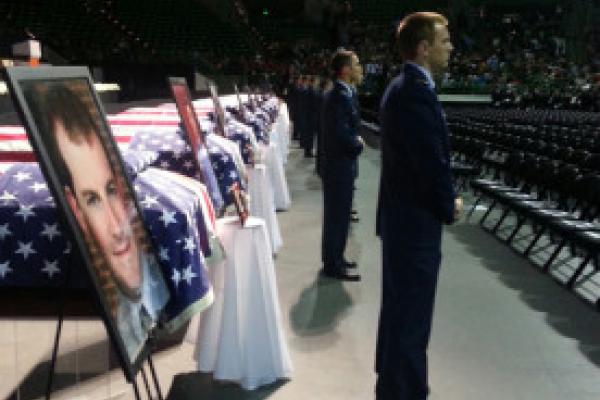As friends and families reel from the news that 19 elite firefighters died battling an Arizona wildfire Sunday, the work of some of their spiritual comrades has just begun. Fire chaplains are stepping up to support the grieving, just as they did after 9/11 and the recent fertilizer plant explosion in West, Texas.
“What we do is we come alongside the survivors,” said Chaplain Jimmie Duncan, president of the Texas Corps of Fire Chaplains. “Sometimes we’re quiet. Sometimes we hug them. Sometimes we pray. … We just stand there with them and try to meet their needs and walk alongside them through the darkest part of their lives.”
Duncan is the associate director of the South Central Region of the 700-member Federation of Fire Chaplains. About half of the chaplains in the federation are ministers, and half are firefighters who have trained to become chaplains. Their everyday duties are similar to that of other pastors — visiting sick firefighters, providing basic counseling and praying at civic events and fire department ceremonies.
But officially notifying a loved one who just lost a firefighter is “absolutely one of the toughest things we ever do,” said Duncan, who spoke at the April memorial service for the West firefighters and sat next to first lady Michelle Obama.
“Not only do we have to tell them that their loved one was dead but we weren’t able to do anything to prevent that. It’s very tough for us as firefighters to have that to do,” he said.
Read the Full Article

